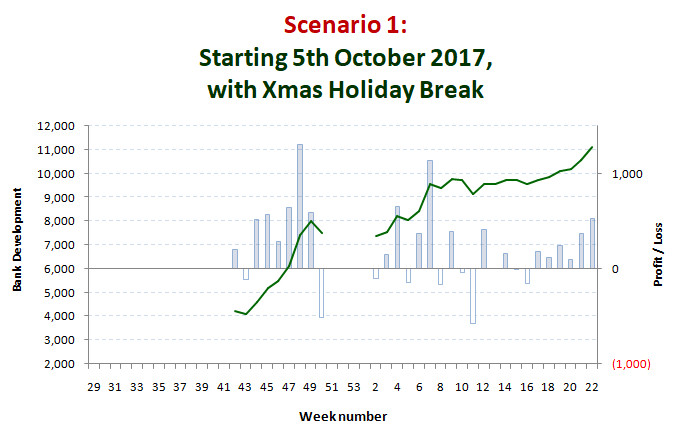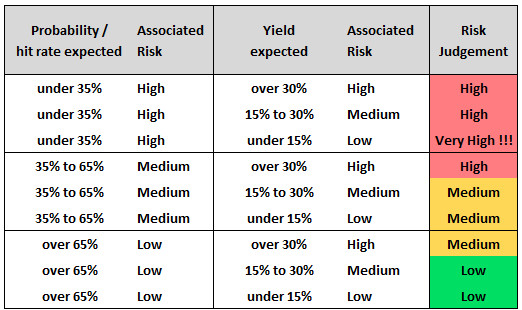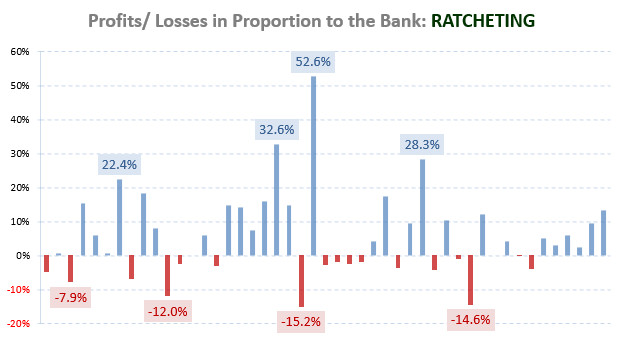
A betting exchange is not a bookmaker. They simply provide the Web site (platform) to allow logged-in members to bet against each other…
 Image: Nagy-Bagoly Arpad (Shutterstock)
Image: Nagy-Bagoly Arpad (Shutterstock)Betting Exchange Basics
A betting exchange site is a platform allowing you to place bets that are matched-up with other users’ bets on the opposite outcome to your selection. Placing a bet in this fashion is like a virtual hand-shake on a wager with an unknown opponent (or group of persons if portions of your proposed wager are accepted by different people).
A betting exchange is not a bookmaker. They simply provide the Web site (platform) to allow logged-in members to bet against each other.
A bookmaker’s business is out and out gambling, hoping to recover more money from losing bets than they have to pay out to winning clients. They achieve this by being more statistically astute than the vast majority of their customers and also, by virtue of the fact that they are able to offer a book containing thousands of available markets at any one time. For a bookmaker, profit is just a numbers game and achieved by selling a huge portfolio of bets, spreading their risk.
It can be even argued that bookmakers are more vulnerable to fixed matches as anyone can walk into a bookmaker’s shop and place an anonymous bet. With an exchange every transaction is performed online by logged-in, registered users whose identity is captured through the signing-up procedure.
Bookmakers need reserves of money to maintain solvency margin and also have to worry about balancing their books.
A betting exchange has none of this operational worry as it is more of a ‘sausage machine’ and remuneration comes far easier in the form of a commission rate applied only to the winning amount of every bet won by every user.
The standard betting exchange commission rate is 5% although some are lower; for example, Smarkets is a relatively new entrant to the industry and is thus seeking market share by charging its customers for the privilege of using its betting platform a competitive rate of only 2% commission on winning bets.
Some exchanges have a tiered commission rate structure offering lower charges in return for a user’s loyalty. However, this is a dubious reward. You also need to be aware that the Betfair exchange (the world’s largest) levies ‘premium charges’ on the winnings of their more successful customers. This charge can be as high as 60%!
The ability to ‘lay’ an outcome is the major advantage of a betting exchange. If the outcome of a particular event is ‘layed’, you are betting on it not to win. For example, the result of a football match can be a home win, away win or a draw. By placing a single lay bet against one of these three outcomes not to win you are actually ‘backing’ the other two to win, providing in numerical terms (not actual probabilities) a two in three chance of success.
For the full-time home, draw and away market this is the betting exchange equivalent of a bookmaker’s ‘double chance’ bet.
However, a ‘lay’ bet is more useful in event markets where there are numerous outcome possibilities (e.g. half-time or full-time correct score markets, half-time/full-time result combination bet, etc.). For example, the half-time/full-time market has nine possibilities and laying one of these would mean winning the bet if any of the other eight possible outcomes were to happen.
Of course, if the outcome you have ‘layed’ wins, then the bet is lost.
Because of the application of a commission charge on winnings, the back prices found in betting exchanges are higher in order to compete with bookmakers. If this were not the case, then there would be no compulsion for anyone to use a betting exchange ante post (i.e. placing a bet before the event). It is the customers who decide the prices they are willing to buy (back) and sell (lay), not the betting exchange.
Traders or arbitrage bettors profit from price changes either before an event has started or whilst it is in-play.
When a goal is scored or another major event potentially affecting the outcome of a game occurs (e.g. a sending-off, penalty award, etc.), the betting exchange prices are temporarily ‘frozen’. The market is then said to be ‘suspended’.
The market switches ‘live’ again once the goal or other occurrence has been confirmed as a permanent event in the match. At this point prices will have dramatically altered allowing profitable trading situations for those currently in a winning position. For those on the other side of the coin, trading out of a losing position for profit is not possible but, of course, they can consider trading out for a loss in order to cut their overall potential loss.
Trading in-play is available for the entire duration of a game. Extra time, if applicable, is treated as a separate event.
When a bet is placed, the credit in a user’s account is reduced by the amount of the potential liability (even if it is not yet matched). Only the unmatched portion of any bet can be cancelled by the bettor at any time and the applicable stake/liability is immediately credited back to his account balance.
When a match is finished the betting exchange automatically credits the winning bettors. Some exchanges credit winnings as soon as the bet is won, which might be at any point in a match if, for example, an over 2.5 goals bet is selected and the third goal is scored.
Betting exchanges offer a far more ‘exciting’ interactive experience than live, in-play betting with a bookmaker where selections are limited to back bets only.
But beware, exchanges can become far more addictive to use especially where they also offer live streaming video of events to heighten the suspense and to encourage you to bet with your eyes, not your head!







